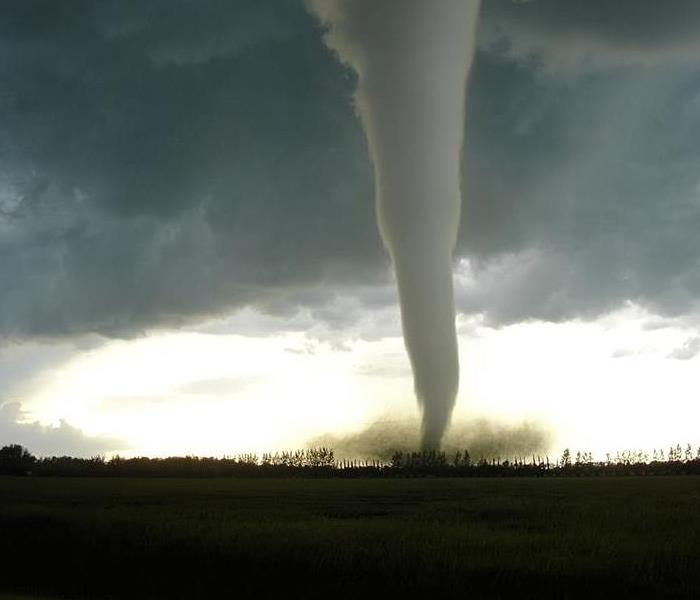Staying Safe in a Tornado
4/25/2024 (Permalink)
TIP ?: Be prepared.
The best way to stay safe during a tornado is to be prepared with the following items:
- Fresh batteries and a battery-operated TV, radio, or internet-enabled device to listen to the latest emergency weather information
- A tornado emergency plan including access to a safe shelter for yourself, your family, people with special needs, and your pets
- An emergency kit (including water, non-perishable food, and medication)
- A list of important information, including telephone numbers
Be sure your children know what a tornado is, what tornado watches and warnings are, what county or parish they live in (warnings are typically issued by county or parish), and what makes a location a safe shelter, whether at home or at school.
TIP ?: Stay aware of weather conditions.
To protect yourself and your loved ones from harm during a tornado, pay close attention to changing weather conditions in your area. If you know thunderstorms are expected, stay tuned to local radio and TV stations or a NOAA weather radio station for further weather information. Some tornadoes strike rapidly without time for a tornado warning. The following weather signs may mean that a tornado is approaching:
- A dark or green-colored sky
- A large, dark, low-lying cloud
- Large hail
- A loud roar that sounds like a freight train
If you notice any of these conditions, take cover immediately, and stay tuned to local radio and TV stations, a NOAA weather radio station, or the internet.
TIP ?: Know where to shelter.
Falling and flying debris causes most injuries and deaths during a tornado. Although there is no completely safe place during a tornado, some locations are much safer than others.
- Go to the basement or an inside room without windows on the lowest floor (bathroom, closet, center hallway).
- If possible, avoid sheltering in any room with windows.
- For added protection get under something sturdy (a heavy table or workbench). Cover your body with a blanket, sleeping bag or mattress. Protect your head with anything available.
- Do not stay in a mobile home.
If you are outside or in a mobile home, find a nearby building, preferably with a basement. If you are in a car, do not try to outrun a tornado, but instead find the nearest sturdy building.
No one can know a tornado’s strength before it touches down, so keep up with local weather information, especially when thunderstorms are forecasted. Prepare your home and family for the possibility of a tornado. Moving to a shelter quickly is easier when everyone knows where to go, whether in your home or outdoors. Following these tips will give you the best chance for staying safe.
CDC.GOV






 24/7 Emergency Service
24/7 Emergency Service
